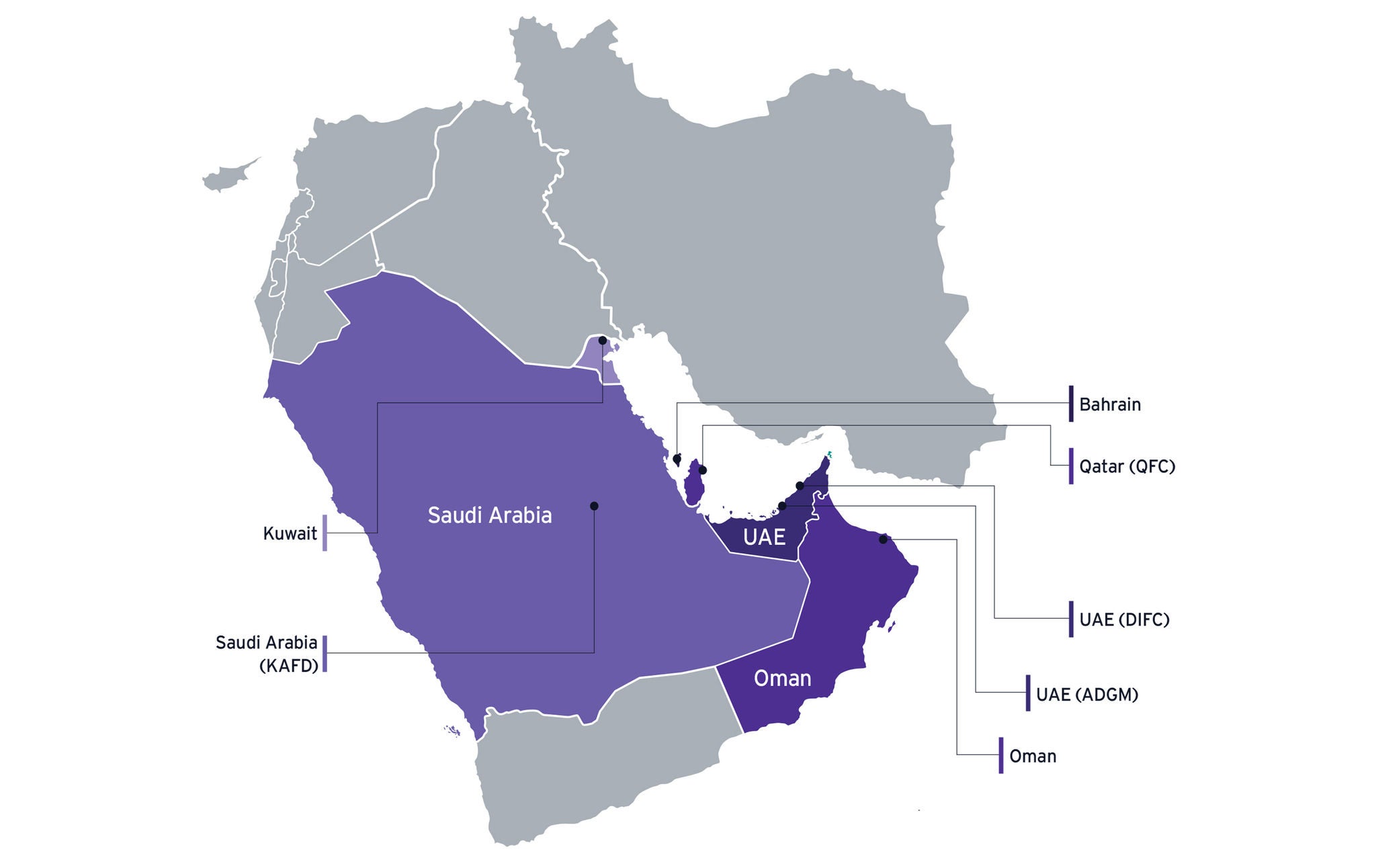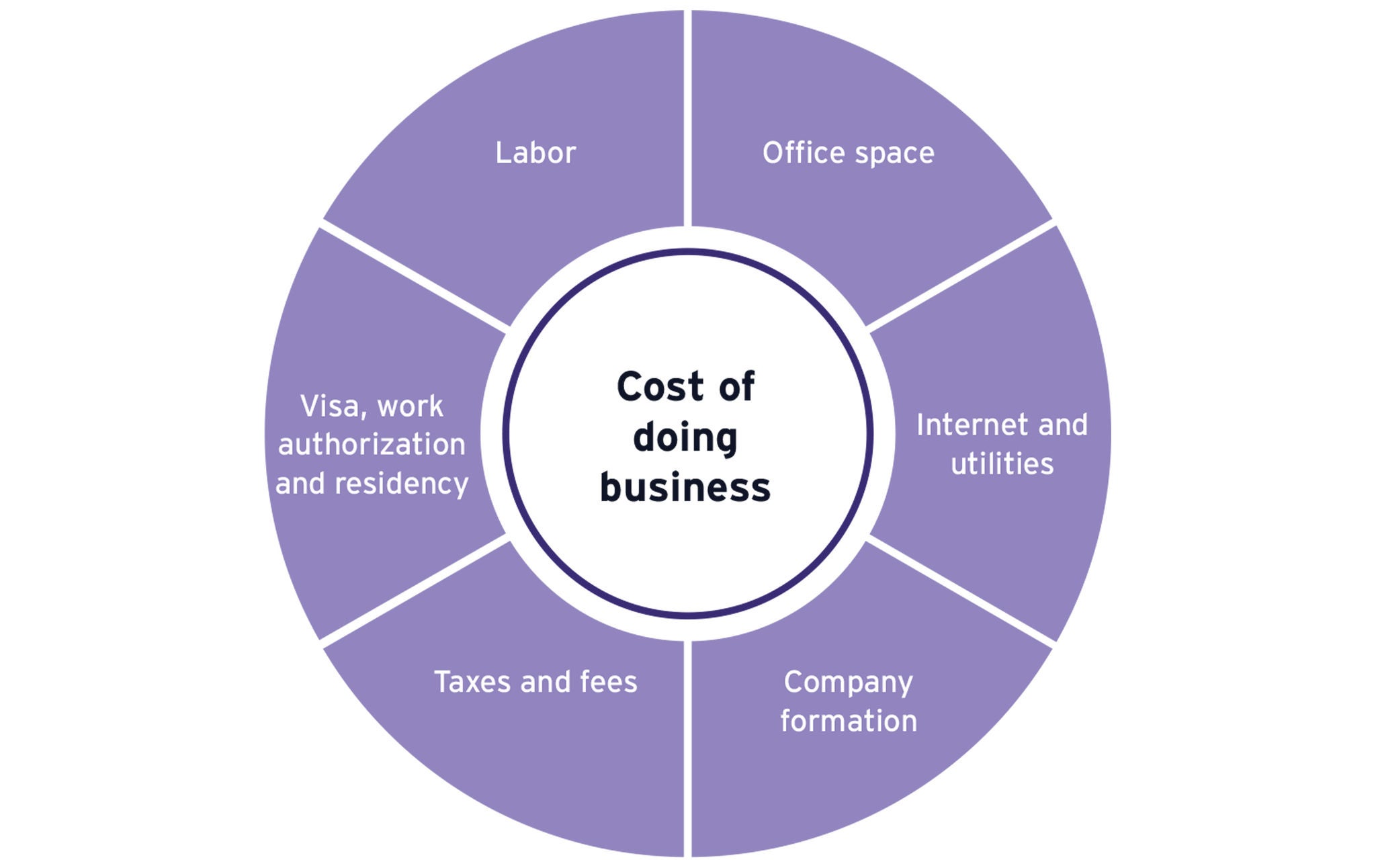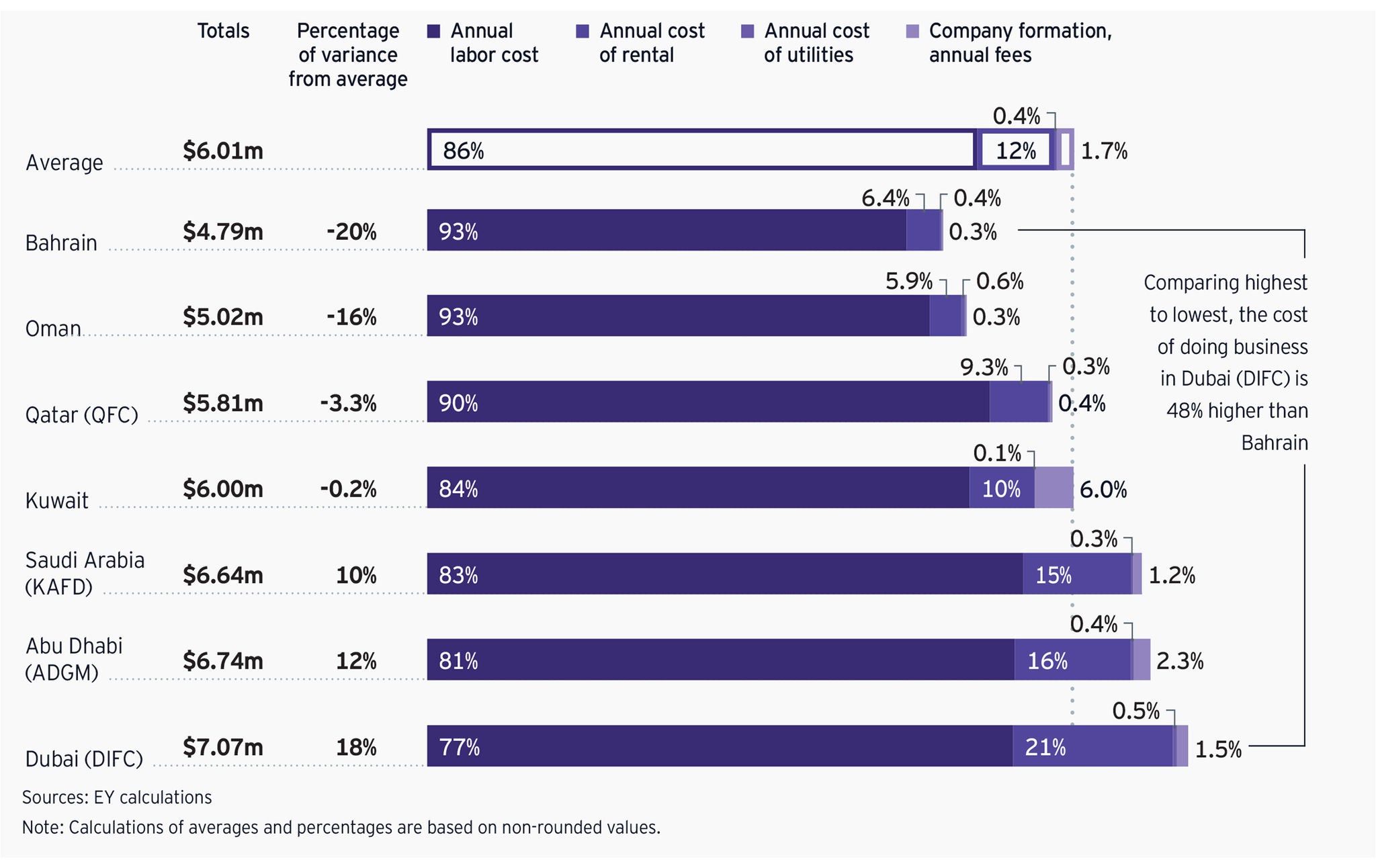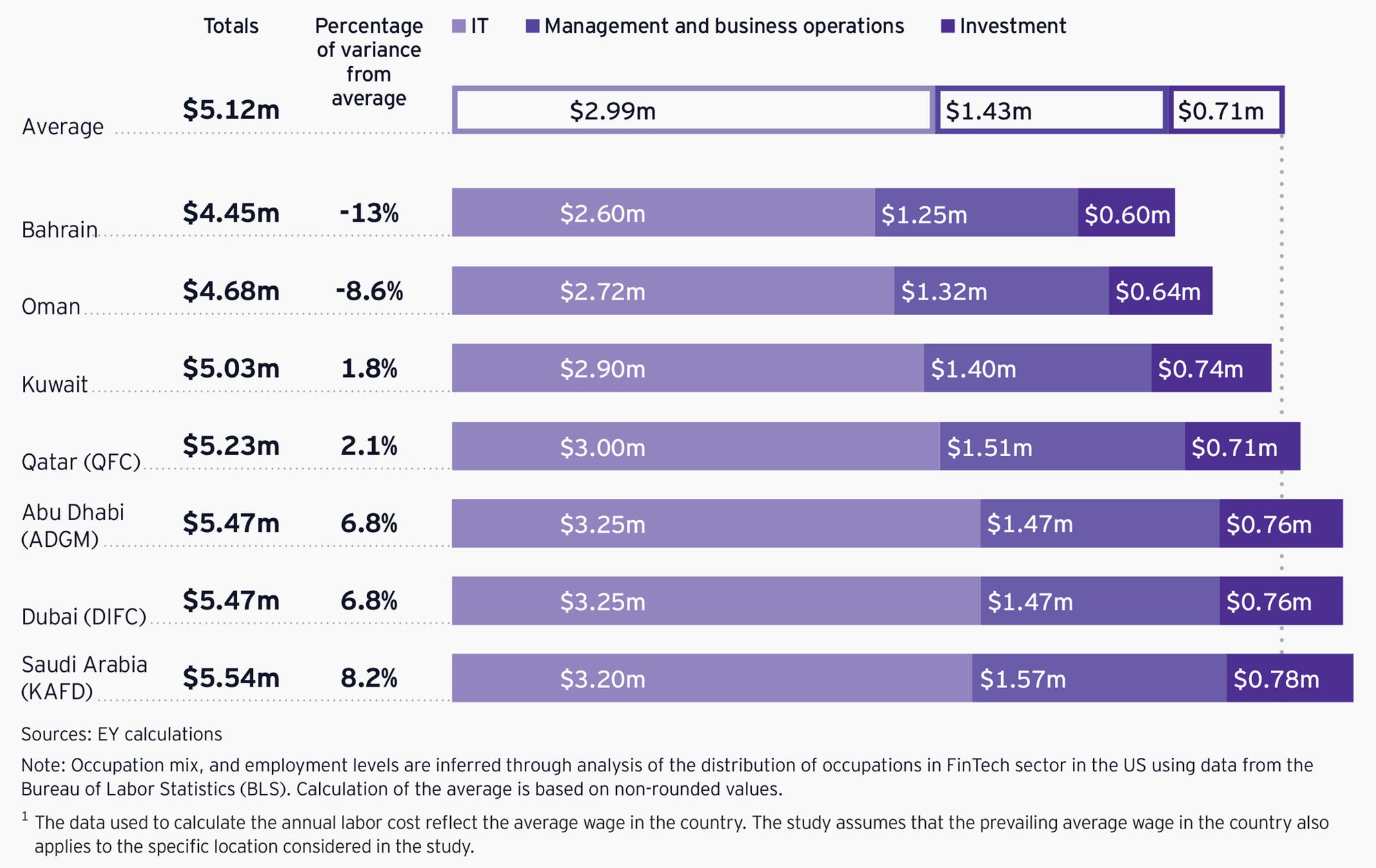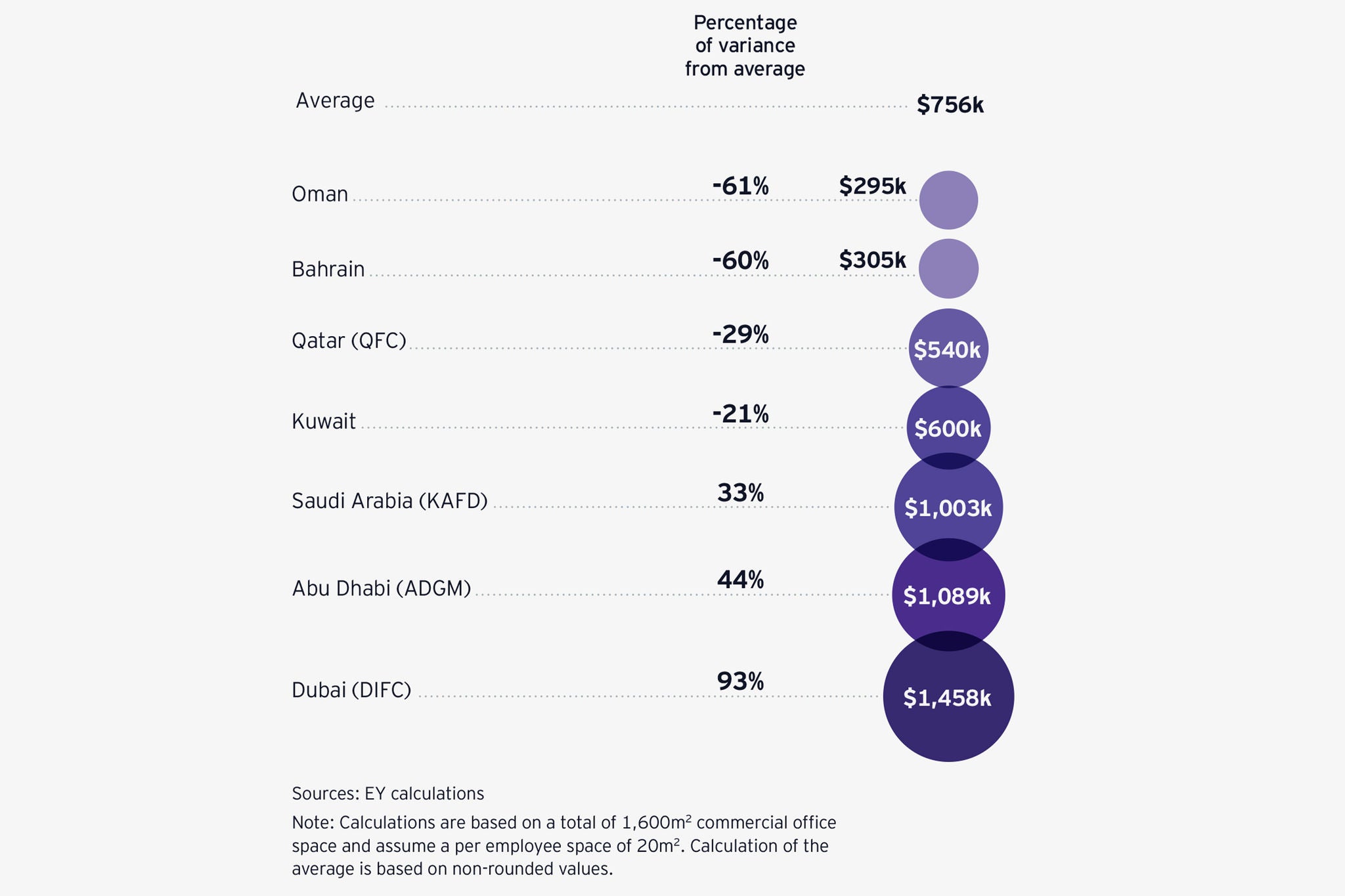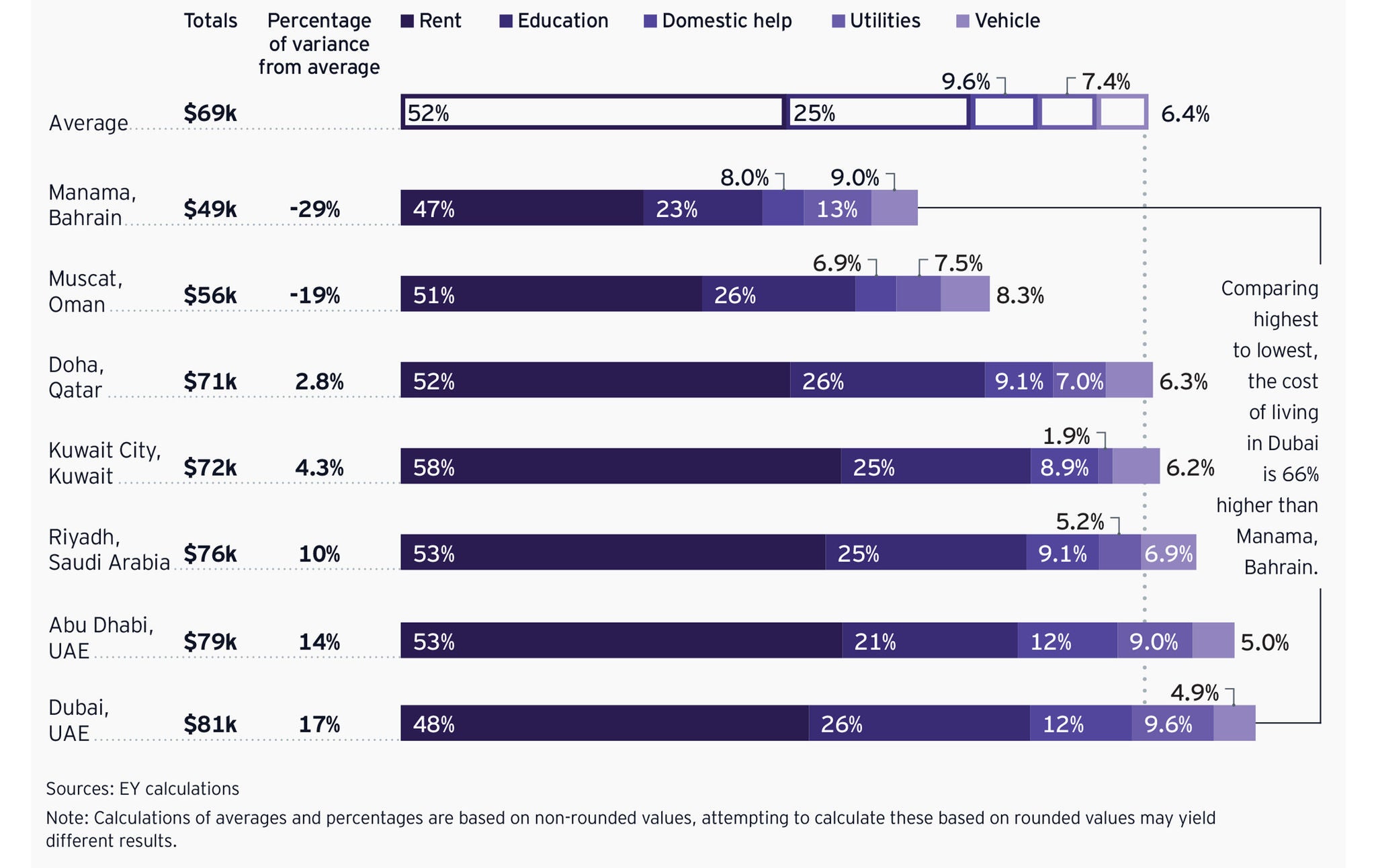Bahrain follows closely where the cost of rent is 60% below the average. Conversely, Dubai (DIFC) has the highest rental costs, about 93% more than the average.
The case study financial services tech hub will be subject to stringent regulations issued by the respective central banks and regulatory bodies in each potential location. The regulatory compliance costs covered in the study include company registration, licensing and minimum capital requirements. For this analysis, two assumptions are made: 1) the firm is registered as a joint stock company and 2) it is licensed as an investment firm. More details on these costs can be found in Table 3 of the report.
Taxes and fees play a crucial role in location choice. The study provides a comparison of tax rates for Corporate Income Tax (CIT), Value Added Tax (VAT), Withholding and Social Insurance. Companies in Bahrain are exempt from Corporate Income Tax (CIT), while companies in Abu Dhabi (ADGM) and Dubai (DIFC) may be taxed at 0% on their Qualifying Income if they meet the Qualifying Free Zone Person (QFZP) conditions. However, recent tax reforms resulting from the Organisation for Economic Cooperation and Development’s (OECD) Base Erosion and Profit Shifting Initiative (BEPS) Pillar Two have been adopted in all GCC countries as of January 1, 2025, except Saudi Arabia. The new rules stipulate that any Multinational Enterprises (MNEs) with global revenues exceeding €750 million in at least two of the last four financial years, are subject to a domestic minimum top-up tax (DMTT) of 15%. More detail can be found in the taxes and fees section of the report, see Table 2.
Overall cost of living
The cost of living is an important factor for company location decisions, as it directly influences the level and type of compensation required to attract and retain employees. The study offers an in-depth analysis of living expenses in the benchmarked locations, encompassing typical family costs such as housing, utilities, private schooling, vehicle expenses and domestic help for a family of four (two parents and two children) residing in a three-bedroom villa.
The analysis shows that families residing in Manama, Bahrain, have the lowest annual cost of living at US$49,000, which is 29% lower than the average among the seven districts. This results in annual savings of US$20,000 compared to the average. In contrast, the cost of living in Dubai is the highest at US$81,000, which is 17% above the average and 66% higher than in Manama.
Families in Manama benefit from competitive housing and education costs, while those in Dubai face higher expenses. The study underscores the GCC's commitment to attracting global talent by providing favourable cost environments. Bahrain stands out as the most cost-effective location for expatriate families, followed by Oman and Qatar, reinforcing its position as an attractive destination for establishing a financial services tech hub.
Figure 6. Overall annual cost of living





